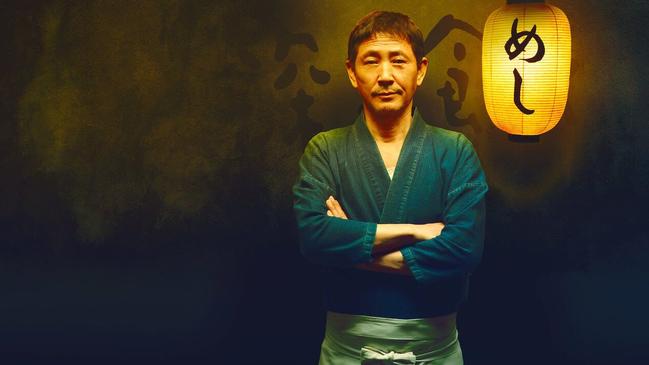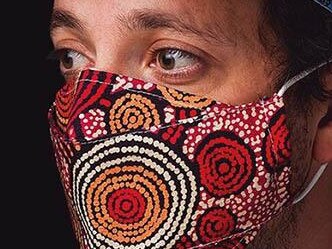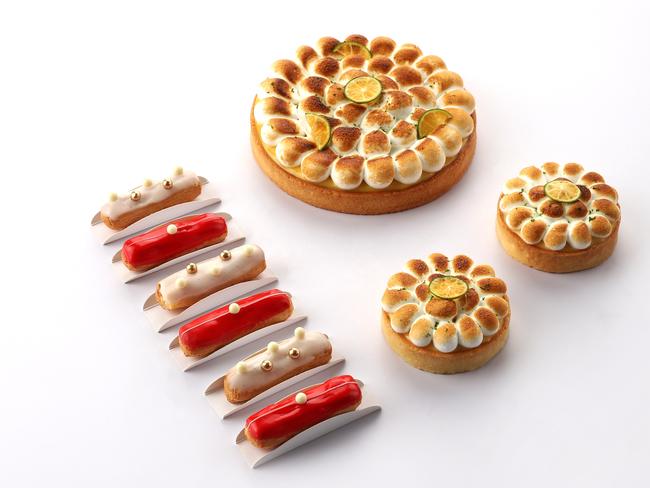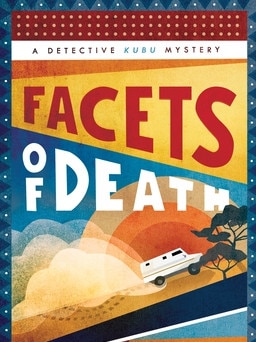Washable face masks with indigenous designs
It’s time to upgrade from single-use face masks, and make way for washable styles with a cultural bent.

Move aside single-use face masks, and make way for easily washable styles in 100 per cent cotton ($15.95) from Alperstein Designs.
Its online store has a selection featuring artworks reproduced under licence from the indigenous-owned Warlukurlangu Artists Aboriginal Corporation, representing artists from the remote desert communities of Yuendumu and Nyirripi in Central Australia. The masks have elastic ear loops, adjustable nose wire and an internal pocket with an extra layer of cotton fabric to add a supplied disposable filter. Additional single-use filters are available to buy. Patterns feature dots and swirls in desert colours from key artists, all of whom receive royalties for each mask sold.

Indigenous clothing manufacturer Bundarra also has a selection of fabric masks in patterns by Aboriginal artists, covering outback motifs plus some with a more contemporary edge, such as leopard print, tropical flowers and pizza slices. Each Bundarra mask ($24.95) is triple-layered, has adjustable ear straps and is sold with two activated carbon filters.
SUSAN KUROSAWA
View from here
MIDNIGHT DINER: TOKYO STORIES and SAMURAI GOURMET
Streaming on Netflix
There was a period in the late 1990s when the elaborately dressed Chairman Kaga ruled our loungeroom as well as his Kitchen Stadium, a gladiatorial amphitheatre in which guest competitors joined cook-offs against the reigning stars of Japanese, Chinese, French and Italian cuisine.
Dishes would be based on key Japanese ingredients such as eel or tofu or, sometimes controversially, the likes of milk or salted plums. This guilty pleasure was titled Iron Chef and I recall it as a crazy precursor to the celebrity-based cooking programs that have been hitting our TV screens ever since.
My new Japanese-produced off-beam obsessions are Midnight Diner: Tokyo Stories and Samurai Gourmet. The former is an absolute treat, centred around a 12-seater izakaya in the night-life district of Shinjuku presided over by the proprietor and chef, known simply as Master (pictured). An enigmatic chap with a facial scar that looks like a sword slash, Master opens his diner between the hours of midnight and 7am.
Each episode is named for the featured dish, and its nostalgic and often deeply melancholy backstory, such as Hot Pot for One.
While Master’s Midnight Diner is a confessional of both bittersweet memories and bawdy secrets, the offbeat Samurai Gourmet 12-parter is based on a manga of the same name and has more to do with appetite than cooking. A recently retired salaryman named Takashi Kasumi doesn’t know what to do with his free time but he does love to eat. So, like a wandering ronin, he seeks new places to dine and to drink beer in daylight hours, which he finds sinful, at least for a while. In getting in touch with his “inner warrior”, Kasumi has visions of a daring samurai alter-ego who bucks the rules of Japanese social etiquette, inspiring him to follow suit. As in Midnight Diner, the connections between food and memory are deep and sustaining.
SUSAN KUROSAWA
Virtually there

Normally a highlight of the travelling foodie’s calendar, Singapore Food Festival is taking a fresh approach in the year of COVID. The pandemic has put the kibosh on the physical event but organisers are embracing technology to deliver a virtual celebration of the Lion City’s renowned culinary credentials.
Held over two August weekends, participants will be able to watch the action livestreamed on Facebook and YouTube plus explore appetising havens such as Chinatown and the Peranakan culture hubs of Joo Chiat and Katong on virtual tours with TV personality Chua Enlai.
Singapore residents have access to even more intimate experiences, such as ordering cook-along kits for use in masterclasses and the home delivery of specially curated SFF dishes.
Restaurants in the masterclass line-up include fine diner Odette and barbecue establishment Burnt Ends, which will reveal the secrets of French choux pastry dessert Paris-Brest and smoked ribs, respectively. Australian viewers might be grateful to be watching from a distance the session titled Of Durian and Blue Cheese: A Tasting Journey but Cheryl Koh’s lesson in making her National Day eclairs and calamansi meringue tarte looks like a cracker; August 21-23 and 28-30.
PENNY HUNTER
Book club
FACETS OF DEATH
Michael Stanley
South African authors Michael Sears and Stanley Trollip collaborate under the Michael Stanley byline. The prolific duo has written collections of short stories set on their home continent, including the suspenseful African Mysteries, in which one tale involves “an informal recycler (who) makes a horrifying discovery in a rich Johannesburg woman’s garbage bin”.
But their triumph has been the Detective Kubu crime series, now eight-strong and growing. New this year is Facets of Death, in which “the fresh-faced cop gets ensnared in an international web of danger”.

The reader is cheering for Kubo from the minute he’s introduced. His real name is David Bengu but he’s a soft, portly fellow with a deadly, patient intuition so he’s widely, and affectionately, known as Kubu, which means hippo in the Setswana language of Botswana. The hippo kills more people in Africa than any other beast; our investigator is out to snare more criminals than any other law-enforcement chap.
Despite its 2020 release, Facets of Death is a prequel to the Kubu set, so makes an ideal first option for new readers. It’s 1998 and, straight from university, he’s a detective with the Botswana CID in Gaborone. His colleagues are suspicious and snicker at his name, although a perky clerk named Joy Serome appears rather taken with the newcomer.
Kubu is straight in at the deep end, investigating an elaborate theft of diamonds from the world’s richest mine. The load has gone missing in transit; clues are scarce. There are witchdoctors, scoundrels by the truckload, and a parallel case involving tourist luggage regularly disappearing on flights from Botswana to Europe. Who’s the mastermind behind the elaborate gem heist? Can our self-effacing Kubu also save the suitcases? Joy sums him up beautifully to her sister, Pleasant. “He’s wonderful … and he doesn’t know it.”
The series has resonance with Alexander McCall Smith’s cosy Precious Ramotswe novels, also set in Botswana, but be prepared for true evil and mayhem.
SUSAN KUROSAWA

To join the conversation, please log in. Don't have an account? Register
Join the conversation, you are commenting as Logout